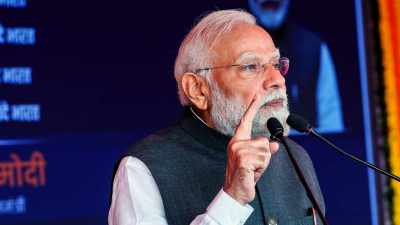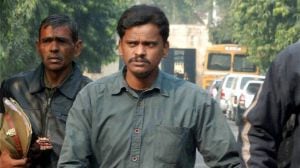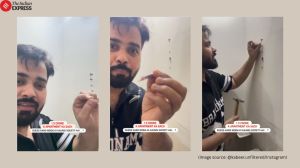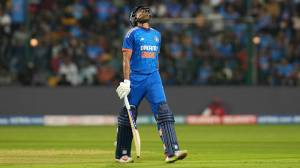Explained: What FCC and IWPC, served eviction notices by the Govt, mean to their journalist members
Both institutions, along with the Press Club of India, have not only been favourite haunts of journalists in the national capital, they have also been physical signposts of the freedom of the press, hosting vibrant formal and informal exchanges and dialogue and a healthy cross-flow of ideas on a vast range of subjects.
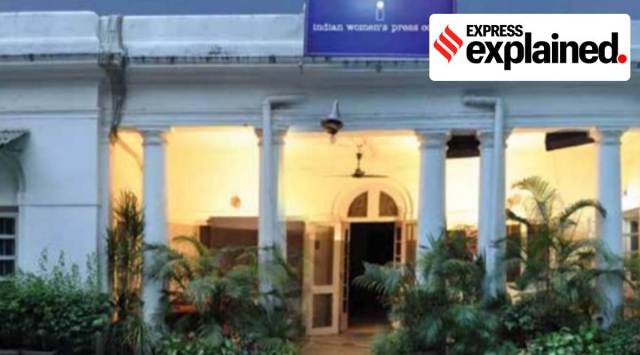 Indian Women Press Club (IWPC) office in New Delhi. (Twitter/@iwpcdelhi)
Indian Women Press Club (IWPC) office in New Delhi. (Twitter/@iwpcdelhi)THE DIRECTORATE of Estates under the Ministry of Housing and Urban Affairs has sent notices to two journalists’ clubs, the Foreign Correspondents’ Club (FCC) and Indian Women’s Press Corps (IWPC) to vacate the bungalows allotted to them in New Delhi as their lease tenures are about to end.
Both institutions, along with the Press Club of India, have not only been favourite haunts of journalists in the national capital, they have also been physical signposts of the freedom of the press, hosting vibrant formal and informal exchanges and dialogue and a healthy cross-flow of ideas on a vast range of subjects. Politicians across the spectrum have respected these spaces, and visited them for constructive engagement of ideas, debates and discussion.
FCC: Where the foreigner became the local
The Foreign Correspondents’ Club (FCC) was founded in 1958 by overseas correspondents posted in India to cover the country and the region — including Pakistan, Afghanistan, Nepal, Bhutan, Bangladesh, Sri Lanka, etc — for their publications.
With its infrastructure and communication links, and being the seat of government of the largest and most important country of the region, New Delhi has been seen as the ideal base for covering the subcontinent.
In 1990, the FCC was allotted premises on Mathura Road.
While the club was started by foreign correspondents to bond, network, and exchange notes, over time it opened its gates to local journalists as well. Also, diplomats, lawyers, and civil society activists were welcomed to facilitate more meaningful and deeper engagements for foreign correspondents in India.
FCC has a busy socio-cultural calendar that includes press conferences, chats with newsmakers, book launches, talks, seminars, screenings of sports events, and cultural events.
IWPC: More than just a women’s ‘club’
The Indian Women’s Press Corps (IWPC) is India’s first association of women journalists. It came up on 5 Windsor Place in 1994 after 18 women journalists pooled in Rs 1,000 each, set up a trust and organised themselves as a support group to help their colleagues meet challenges that were unique to women, and ensure women’s bylines were respected and heard.
Then Prime Minister P V Narasimha Rao took special interest in getting the bungalow allotted to IWPC, and directed his press adviser PVRK Prasad to coordinate the details.
Generating revenues was sometimes difficult, but women journalists often offered voluntary services to keep the club going. More than 800 women journalists are members of IWPC today, who use it to “network, access news sources, enhance their skill, exchange information, discuss issues, voice concerns, interact with peers and seniors, share experiences and find support to move ahead in the profession”.
Lest the word “club” suggest a certain non-seriousness, the founders of IWPC chose to call themselves “corps”. Being located in the heart of New Delhi and equipped with a library and computer centre, the club solved the challenges of mobility for many women journalists who used the facilities to file their reports without losing time travelling in the city. Some journalists brought their young children to enjoy the IWPC grounds while they worked, and were able to access home-cooked meals while meeting professional demands.
The founding members had felt the need to organise themselves as purveyors of a fresh perspective on news, which they felt was often drowned in the stereotypical discourse of the Press Club. Many male journalists agreed with and supported the efforts of their women colleagues.
The IWPC now has a thinkspace of its own. It organises press conferences and facilitates exclusive interactions with newsmakers, at which its members are known to ask probing questions. Conversations at IWPC have acquired a distinctive character over time.





- 01
- 02
- 03
- 04
- 05


